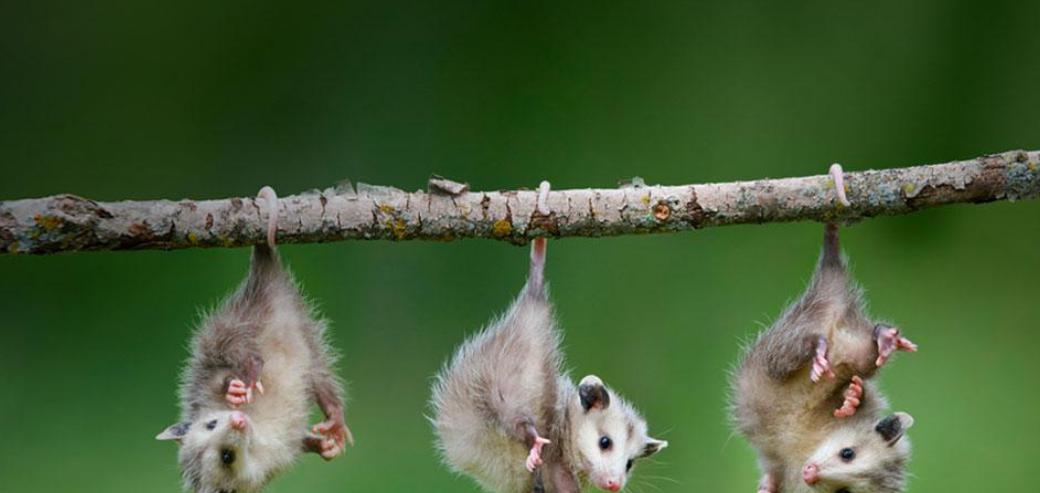We call some kangaroos, koalas, possums, etc. that develop in the mother's sports bag in Australia and parts of South America as marsupials, while other animals whose embryos develop in the maternal placenta are called placentals.

opossum
Placental animals in Europe, Asia, North America and Africa, where postnatal mortality is greatly reduced due to the full development of their pups in the mother's body, quickly replace marsupials with relatively high birth mortality in the competition for survival.
Due to the movement of the earth, the Australian land plate was separated from the ancient continent known as the "Pan Continent" relatively early, and the vast ocean became a natural barrier between it and other continents, preventing the genetic exchange between primitive marsupials and evolved placenta, so that the region's marsupials were fully developed. Australia's diverse forest, grassland and desert environment also provides a relatively rich habitat for various animals, forming adapted evolutionary taxa similar to placentalates on other continents, various kangaroos corresponding to herbivores, tasmanian devils corresponding to carnivores and many other strange species unique to Australia. This is the product of geographic isolation.
koala
A similar "island effect" formed by the separation of the ocean also occurs on the island of Madagascar on the east coast of Africa, where many unique animals such as lemurs and ring-tailed badgers have evolved, becoming one of the world's animal treasure houses.
Ring-tailed badger